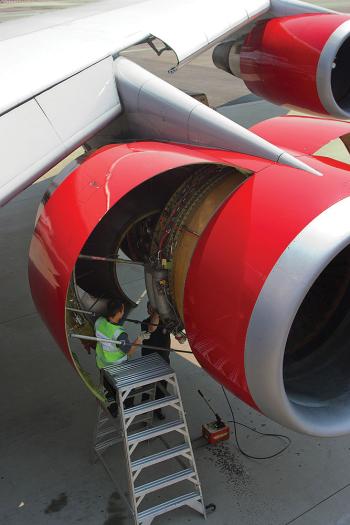MRO Industry Pushes FAA To Amend Documentation Mandate

In November 2018, ARSA released a “toolkit” for maintenance providers seeking exemption from 14 CFR §145.109(d) in an effort to level the playing field for its members, particularly small-to-medium-size businesses, which make up the majority of repair stations.
The playing field is muddy, messy and hilly for all repair stations—small, medium, large and superlarge. First, the FAA does not enforce the requirement for design approval holders (e.g., manufacturers) to create and make maintenance data available (§21.50(b)) but doesn’t have any issues with demanding compliance with §145.109(d). Next, the requirement to maintain this “current” information is absent from all other maintenance providers’ requirements—mechanics and airlines are required to comply only with Part 43.
Section 43.13(a) allows persons to complete maintenance, preventive maintenance and alteration using “methods, techniques and practices acceptable to the Administrator,” which include current and previous versions of manufacturer-provided maintenance data as well as that developed independently by repair stations, mechanics and airlines. This flexibility is vital to aviation safety because the “current” data are not always correct.
For example, as one repair station reported to ARSA, “[a manufacturer] revised their [repair] manual and removed schematics and parts lists of older manufactured circuit boards. However, there are still aircraft flying today . . . that have these older-version circuit boards in them. The only way a repair station can support these units is to reference the older (noncurrent) manual.”
Unfortunately, §145.109(d) requires repair stations to maintain libraries of “current” data, even when not required . . . and even when it may be wrong for the work to be performed!
The cost to industry, to owners and operators of aircraft, and to the flying public that ultimately pays all the bills, is very high. A small business with average annual revenue of $2,500,000 reports being quoted $731,251 per year to maintain the currency of its library, which, according to simple math, represents more than 29% of the company’s average annual revenue.
The exemption effort gave small business a mechanism to demonstrate this pointless waste to the agency and seek relief. Unfortunately, the agency closed that door; its responses to petitioners stated: “There are no unique factors that would limit applicability of the exemption to the petitioner. . . . The more appropriate vehicle for the petitioner’s request is with a petition for rulemaking.”
ARSA was delighted to pick up the FAA’s gauntlet. On Dec. 23, 2019, the association gave the agency a holiday gift: a petition for rulemaking to delete the last sentence of §145.109(d).
“The requirement to maintain current and accessible documents and data irrelevant to the work performed provides no safety benefit,” the petition said. “The costs cannot be justified and the unnecessary sentence causes substantial confusion and expense for the agency. The requested amendment of section 145.109(d) will eliminate needless and discriminatory burdens.”
You can learn more about the effort, read and support the petition by visiting the docket at regulations.gov/docket?D=FAA-2019-1106. You’ll see—if you don’t already recognize—that it makes more sense to be correct than to be current.
Sarah MacLeod is managing member of Obadal, Filler, MacLeod & Klein and a founder and executive director of the Aeronautical Repair Station Association. She has advocated for individuals and companies on international aviation safety law, policy and compliance issues for more than 30 years.